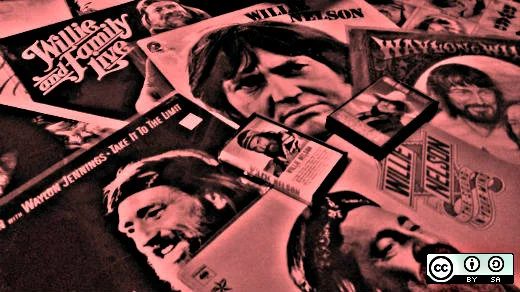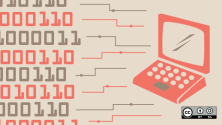I cringe when I see job listings searching for "rock star developers." What does that even mean? Developers who take all the credit, while the band, agent, road crew, and sound engineers do the heavy lifting?
My friend Jacob Kaplan-Moss got me thinking about this concept of the "rock star" developer when I watched his PyCon 2015 keynote. In his talk (which I highly recommend you watch if you haven't seen it yet), he explains that tech doesn't need rock star developers. Instead, we need more average developers, a category in which he includes himself. On one hand, I agree with him. But in the other hand, I'd like to hold tickets to see Willie Nelson in concert, because that's what we need. We need more Willie Nelsons.
Willie Nelson is no rock star, but he did make number 88 on Rolling Stone's list of 100 Greatest Singers. The article quotes Wynton Marsalis, who says that Willie's "... phrasing is very unpredictable, but it comes out poetic and very logical... ."
Unpredictable, poetic, and very logical also could describe innovative code, don't you think?
And on that musical-yet-code-related note, I've taken the initiative to round up a list of eight ways developers can be more like Willie Nelson:
- Help others succeed: Willie didn't start his career with a hit record. Among other jobs he's had, Willie was a disc jockey, playing and promoting music other people wrote and recorded. He played bass for Ray Price. And he has written huge hits that other artists, including Roy Orbison and Patsy Cline, recorded and made famous. Crazy, right?
- Pick up new skills: Willie is known as being a great country singer and songwriter, but when it comes to knowledge and experiences, Willie has range. He's acted in a variety of movie and television roles, written books, is a fifth degree black belt, and has dabbled in different musical genres, including reggae. Yes, reggae.
And Willie offers a great reminder that we're never too old or experienced to learn and share new tricks.
- Be accessible: I've seen Willie play from the comfort of a cushioned seat in a small, spendy theater; standing on the floor in front of a stage in a historic theater with mid-range ticket prices; and from a folding chair at a county fair. Each event attracted a different group of fans, but they all had one thing in common: They wanted to see and hear Willie. And in each case, attendees were treated to a great experience, regardless of their backgrounds and budgets. In open source, instead of rock star developers who are admired—yet inaccessible—to most of their community, we can all benefit from Willie Nelsons. We need developers willing to share their skills and experience at the pricey for-profit technical events, as well as at the affordable, community-organized non-profit conferences.
- Recognize and acknowledge influences: Willie says that Django Rheinhart, Johnny Gimble, Bob Wills, Ray Charles, and Louis Armstrong are among his biggest influences. He continues to be influenced by peers as well as new and young musicians. For example, Willie often covers songs other people wrote, so I was delighted when he spoke highly of Billy Joe Shaver at a concert I attended and then dove into one of Billy Joe's songs. Billy Joe hasn't had the commercial success or the level of attention Willie has received over the years, but he's a highly respected singer and songwriter who deserves the acknowledgment. Willie has played songs by many other musicians, including Bob Dylan, Nirvana, and Pearl Jam.
In open source, developers publicly recognizing their influences, especially lesser-known people and projects, is like having a "you might also like" button on a shopping site. They are saying, "If you like what I'm doing, be sure to check out this other person/project I like."
Willie even makes a Coldplay song sound good, which makes me wonder whether I've been too hard on them. I mean, if a developer you admire says she likes VisualBasic, you'd give it another look, wouldn't you?
- Use the best tool for the job: In Willie's case, that tool is Trigger, a $50 Martin classical guitar he's played since 1969. "I think this guitar has the best sound of any guitar I've ever played," he says.
But you don't have to use the tool as it was intended. The giant hole in Trigger tells the story of a classical guitar that's been played with a pick instead of fingers.
- Surround yourself with a diverse mix of people: In 1972, not long after getting Trigger, Willie "retired" and moved back to Texas. "The Austin scene always was a little bit different. It always was an eclectic mix," Jerry Jeff Walker says, explaining the Austin music scene, which was full of musicians who were outside of the norm. "And that's what Willie was tapping into," he says. Mixing with a diverse group of people worked. Willie's style evolved, and success followed.
- Collaborate: I love Willie's solo albums, but his collaborations are brilliant, too. In fact, his first top 10 hit was a duet with Shirley Collie. You've probably heard some of his popular duets, including songs with Waylon Jennings, Kris Kristofferson, Ray Charles, and Merle Haggard. But have you heard his work with Asleep at the Wheel?
Or with Snoop Dogg?
- Go ahead and be average, or even "not that bad": In the one hand, I hold concert tickets and a tale of why I think the world needs more Willie Nelson developers. But on that other hand, I do agree with Jacob Kaplan-Moss, who was right in his PyCon keynote when he said that we need more average developers. Willie didn't get famous over night, and his premature retirement in the 1970s didn't last. He kept playing, learning, picking on Trigger, and collaborating with a range of people and groups. Now he's got a giant body of work, full of hits, misses, average, and not that bad songs to show for it.
If you're not a rock star developer, good for you. Shoot for being average, or try to be more like Willie, who said, "I never gave up on country music because I knew what I was doing was not that bad."







12 Comments